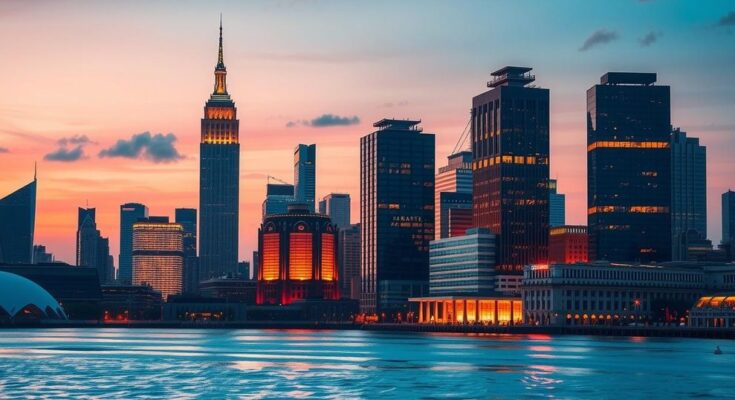The recent New York City mayoral primary has stirred quite the conversation among Democrats, especially with Zohran Mamdani leading the charge. His candidacy seems to embody a growing desire for progressive change among younger voters, raising concerns and hopes for the future of the party. As the results of this election are scrutinised, the broader implications for the Democratic Party are becoming clear, as they navigate this pivotal moment.
Understanding the Shocking Turn in NYC’s Mayoral Race
In a stunning turn of events, the recent New York City mayoral primary has raised eyebrows and sparked fresh discussions about the Democratic Party’s landscape. Zohran Mamdani seems to have caught the public’s eye, leading in the initial counts with a mix of progressive allure and populist messaging. This landmark moment, characterised by its unpredictability, has sent ripples throughout the political sphere, leading many to question what this means for Democrats moving forward. It’s not just about a single race; it’s the potential foreshadowing of broader shifts within the party’s foundational strategies.
The Role of Progressive Ideals in the Race
Mamdani’s rise can be seen as a reflection of the Democratic base’s yearning for change, particularly among younger voters. With his progressive platform prioritizing affordable housing, climate policies, and socio-economic equity, he’s managed to galvanise support from disenfranchised groups who feel overlooked. The emphasis on grassroots campaigning and a direct connection with constituents appears to resonate, as many begin to expect their elected officials to embody a more relatable and responsive approach. This highlights a crucial point: to engage younger voters, Democrats may need to innovate their strategies considerably.
Implications for Future Democratic Candidates
Beyond just Mamdani’s appeal, the race puts a spotlight on how Democratic candidates might need to navigate their way through this moment of political re-evaluation. The primaries show there’s a genuine appetite for candidates who represent the voices of traditionally underrepresented communities. As this unfolds, political experts are keeping a close eye on whether this will be a one-off or perhaps a catalyst for a movement that challenges the status quo within the Democratic Party. This dynamic illustrates how pivotal this mayoral race is in shaping the narrative for upcoming elections.
Navigating Internal Divisions Within the Party
It’s worth noting that the implications do not just end with the voting totals. The Democratic Party must reckon with internal divisions that sometimes boil over. Looking towards the future, there’s a clear call for unity, but also a recognition that this requires balancing traditional values with more progressive stances. As voters become increasingly vocal about what they want, the party’s response will be key in determining future successes, or risks of losing ground to opposing parties. The NYC mayoral race, therefore, isn’t just about one city; it’s about a crucial ideological crossroads for the Democrats.
Conclusion: A Crossroads for the Democratic Party
In conclusion, what the New York City mayoral primary exposes is more than a mere electoral contest; it’s a reflection of a party at a crossroads. The results have opened the floodgates for conversations around what is necessary to rejuvenate the Democratic base and bridge gaps that have long been evident. As the dust settles on this primary, all eyes will be on Mamdani and how his candidacy shapes the future of the party. The shock waves from this race could very well influence how Democrats position themselves not just locally, but on a national scale too.
Who is Zohran Mamdani?
Zohran Mamdani is a progressive candidate in the New York mayoral race who has gained popularity for his focus on crucial issues like housing and economic inequality.
What do the NYC primary results mean for Democrats?
The NYC primary results signal a possible shift within the Democratic Party as younger, more progressive candidates gain traction among voters seeking change.
Why is the NYC mayoral race significant for future elections?
This election is important as it reflects larger trends in voter preferences, especially among younger constituents. The outcome could greatly shape future Democratic campaigns.
What challenges does the Democratic Party face after this primary?
The primary exposes a need for the Democratic Party to unite and adjust its strategies to appeal to an increasingly diverse electorate while addressing internal divisions.




